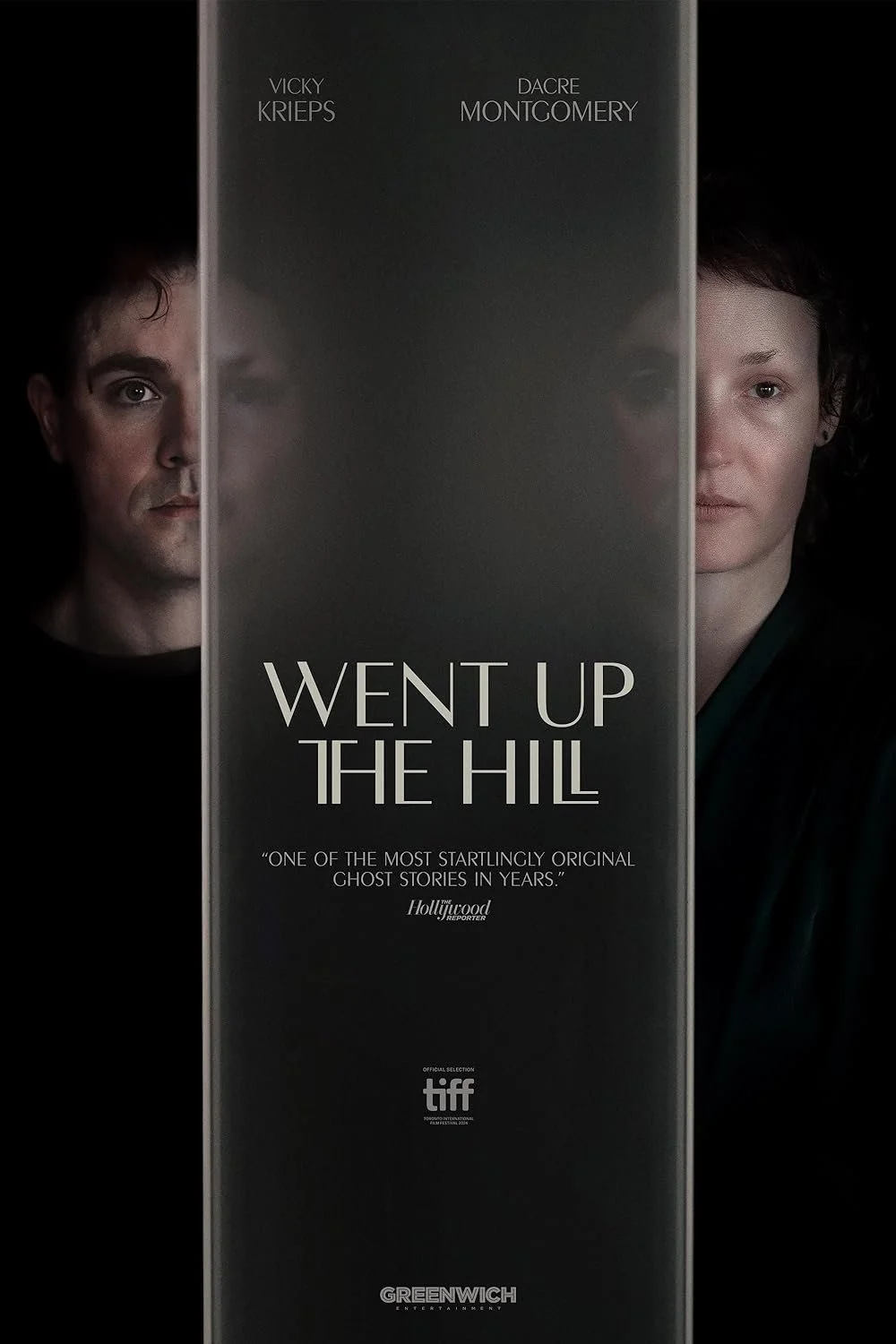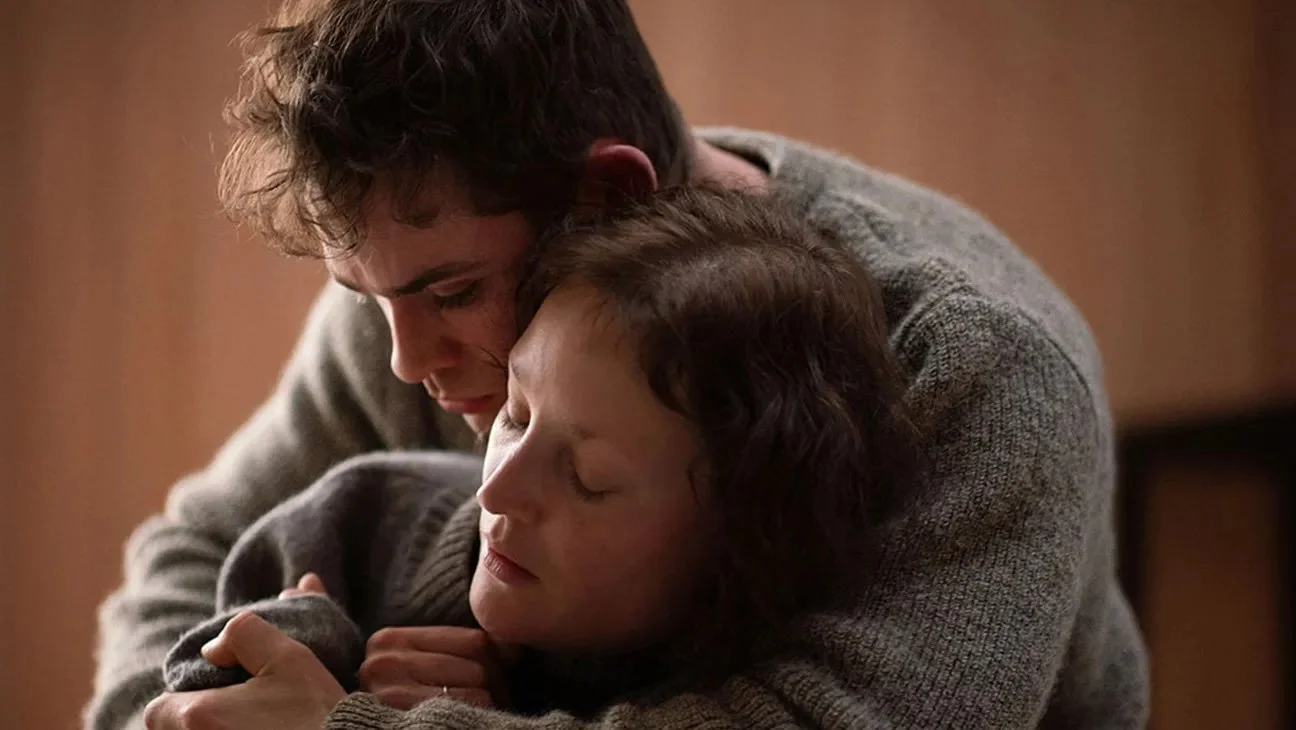Dacre Montgomery Talks Wanting to Be Scared by Art in Went Up the Hill
This interview was originally posted on Film Obsessive.
Dacre Montgomery is no stranger to battling otherworldly beings. He spent two seasons in the world of Stranger Things and took on the role of the Red Ranger in the criminally underappreciated Power Rangers reboot from 2018. His latest project, Went Up the Hill, sees Montgomery taking on a different type of force, one that can be seen as supernatural or psychological depending on the viewer’s own perceptions. Went Up the Hill premiered at TIFF in 2024 and will have its theatrical release on August 15. Montgomery sat down with Film Obsessive News Editor Tina Kakadelis to discuss finally playing an Australian role, challenging audiences with difficult films, and what his creative voice sounds like.
In Went Up the Hill, Montgomery plays Jack, a young man who attends the funeral of his estranged mother, Elizabeth. While there, he meets his mother’s widow, Jill (Vicky Krieps), for the first time. She encourages him to stay with her so they can get to know each other. During the first night Jack stays at the house Elizabeth designed, he and Jill discover that the spirit of Elizabeth has the power to inhabit both of their bodies while they’re sleeping. It was the conceit of two actors playing the same character that sold Montgomery on the project years ago.
Mike Windle/Netflix
“The pitch was a three-hander told by two people. That was the real ‘in’ for me,” Montgomery recalled. “But also, more than anything, I think Samuel Van Grinsven, the director, is going to become the great Australian auteur director of my generation. He had such a specific vision.”
courtesy of Went Up the Hill
After the hectic years of Power Rangers, Stranger Things, and plenty of other films that were shot and released at the same time, Montgomery put a pause on acting. It was Van Grinsven’s vision, presented to Montgomery via PowerPoint and vision board, that made him jump at the chance to portray Jack.
“I wrote him this big letter and said, I want nothing more than to work with you on this production. To be there and embody this character,” Montgomery explained. “I’ve taken years off. I’ve just been waiting for this exact thing. And then he rang me. He’s like, yeah, let’s go do it.”
Part of what makes Went Up the Hill such a compelling film is how it forces a conversation between viewers. There’s nothing passive about the film and there’s no way someone could walk out of the theater without being moved to talk about what they’ve seen. While it sounds like it could be a simple drama, Went Up the Hill is more of a gothic horror without any of the jumpscares. Montgomery goes so far as to describe the film as “divisive.” While most actors would likely shy away from that adjective, it seems to thrill him.
“I think this movie’s hard to watch,” stated Montgomery. “It was hard to make. It was hard as an actor to be there and to embody those things.”
What Montgomery is referring to when he mentions embodying something is the character of Elizabeth. She is never seen from or heard from in the sense of there being an actor cast in that role. Instead, the spirit of Elizabeth is embodied by Montgomery’s and Krieps’ characters at various points throughout the film. The reason Went Up the Hill was taxing was because the character of Elizabeth was abusive to both Jack and Jill in different ways. Despite sharing the role of Elizabeth, Montgomery and Krieps never felt they had to have her spirit manifest in exactly the same way.
“We are both creating our abuser. It’s like, picture an antagonist in your life who had an impact on you as a child or an adult in a negative way,” posited Montgomery. “But it’s also someone who you also loved. There’s no hair, makeup, or prosthetics at play. It was about having any audience member believe we’re totally trapped in this cycle of not being able to let our abuser go.”
“That’s real for so many people and it’s why I think, despite how dark the film is, the ending is so rewarding,” continued Montgomery. “That’s really why I wanted to do the movie, because it goes beyond just being like, ghosts are our abusers, right? It’s not necessarily just a supernatural thing, so the movie becomes hard to quantify because of that.”
courtesy of Went Up the Hill
It’s rare for a composer to be brought onto a project early enough for their music to be played on set for the actors. Hanan Townshend’s brilliant score is the exception that proves the rule. Because of how early he was hired to the project, Townshend was able to incorporate the sounds of the film’s (mostly) singular location into his score and have it played for Montgomery and Krieps on set.
“The score has the howling wind and rain from the property in New Zealand that’s in the middle of nowhere. The cracking of the ice on the lake and the movements of the rafters on the ceiling inside the house were there too,” Montgomery said. “Hanan played with that and he reverse engineered those noises and made it even more haunting.”
“Honestly, even without the score,” Montgomery continued, “the house was so cold and creepy. It was really intense to be there for a couple of months and be in that headspace because there’s so much of Elizabeth there. The house is Elizabeth. It’s her own creation. So because of that, it was really intense. The score and everything are so reflective of that.”
Even as a character who doesn’t visually exist, Elizabeth is in almost every single frame of Went Up the Hill. The audience is introduced to the idea of her, the public persona of the famed architect, but Jack and Jill both know there’s more to Elizabeth than the world knows. It begs the question that haunts anyone who interacts with artists. How do you separate the art from its creator? Should you separate them? Can you separate them?
“I want to speak to Samuel’s art because that’s a culmination of everything we’re talking about, right?” asked Montgomery. “With Went Up the Hill, Samuel doesn’t create his art with an intention for you to feel XYZ emotion. He puts all of himself in it. His child self, his adult self, his happy self, his abused self. Every version of himself is in his art, and I think that will ultimately be his legacy in his art. He’s on set behind the camera, crying when we’re crying, he’s feeling everything. Every part of him is wrapped up and enveloped in that.”
“I think all great artists are putting all of themselves into their art, and that’s everlasting. It can be divisive, but I think divisive is interesting. After you watch a movie or after you go to an art gallery opening, it’s the greatest artists who create a conversation.”
Netflix
With all this talk about artists and their legacy, it feels right to ask Montgomery about how he views his own. Went Up the Hill is the first time he’s playing an Australian role, and he’s described the experience as the “most life-changing thing in my career.” Looking to the future, though, Montgomery sees this as a catalyst for him to become a storyteller from the director’s chair. His directorial debut, The Engagement Party, is already in the works, and it’s taking him back to where he was born and raised in Western Australia.
“It’s not even necessarily a legacy thing to me. I’m more interested in the moment than the outcome, if that makes sense,” Montgomery said. “I’m more interested in the process of creating character, film, and imagery than I am in terms of the legacy of that or the outcome of that. I’m very much in the trenches at the moment in terms of discovering who Dacre is. Who am I, what makes me me, and how are my creativity and my art an expression of that?”
“I don’t want to wake up in the morning, any morning, and feel like I lacked something creatively that I wanted to explore. I want to be scared. I want to be so scared. I want to confront my demons in my life through art. What a wonderful gift in life, to be able to pay the rent by also just figuring out who you are.”
Support Your Local Film Critic!
~
Support Your Local Film Critic! ~
Beyond the Cinerama Dome is run by one perpetually tired film critic
and her anxious emotional support chihuahua named Frankie.
Your kind donation means Frankie doesn’t need to get a job…yet.
Follow me on BlueSky, Instagram, Letterboxd, YouTube, & Facebook. Check out Movies with My Dad, a new podcast recorded on the car ride home from the movies.




